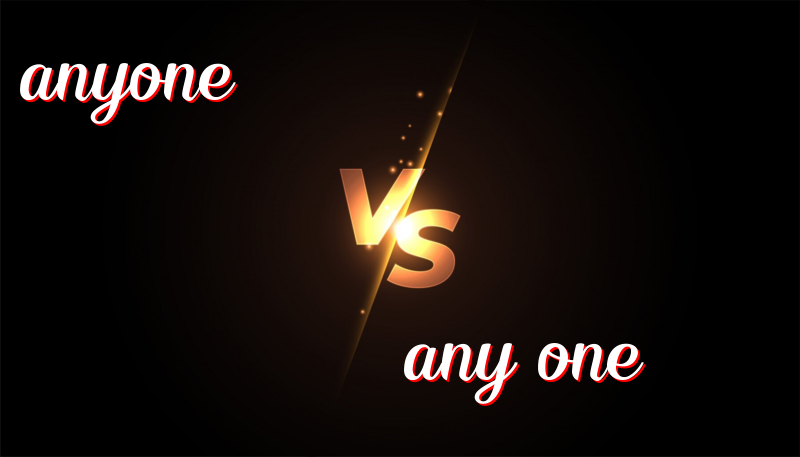Anyone vs. Any One: The Great Grammar Showdown
Understanding “Anyone” vs. “Any One”
History of the Words
“Anyone” and “any one” are words in the English language that may look and sound similar, but they have different uses. The word “anyone” has been used for a long time to mean “any person.” On the other hand, “any one” is used when referring to a singular thing or person in a group.
How to Use “Anyone”
“Anyone” is a pronoun. It means “any person” and is used when talking about people in general.
- Is anyone coming to the party?
- Does anyone know the answer to the question?
- If anyone sees my book, please let me know.
- Is there anyone who can help me with this problem?
- Can anyone tell me how to get to the library?
How to Use “Any One”
“Any one” consists of two words and is used to refer to a specific person or thing in a group. “One” here is used to point out a single item or person.
- You can choose any one of these candies.
- Any one of the students can answer this question.
- Please pick any one book from the shelf.
- Any one of you can volunteer to help.
- I will eat any one of the apples on the table.
Trick to Remember the Difference
To remember the difference: Think of “anyone” as “any person” (one word for one meaning). Think of “any one” as “any single one thing or person” (two words for a specific choice).
Summary of Usage
“Anyone” is used to talk about people in general, whereas “any one” is used to highlight a specific item or person from a group. Remember, “anyone” is for people, and “any one” is for a specific choice.

Leave a Reply
You must be logged in to post a comment.